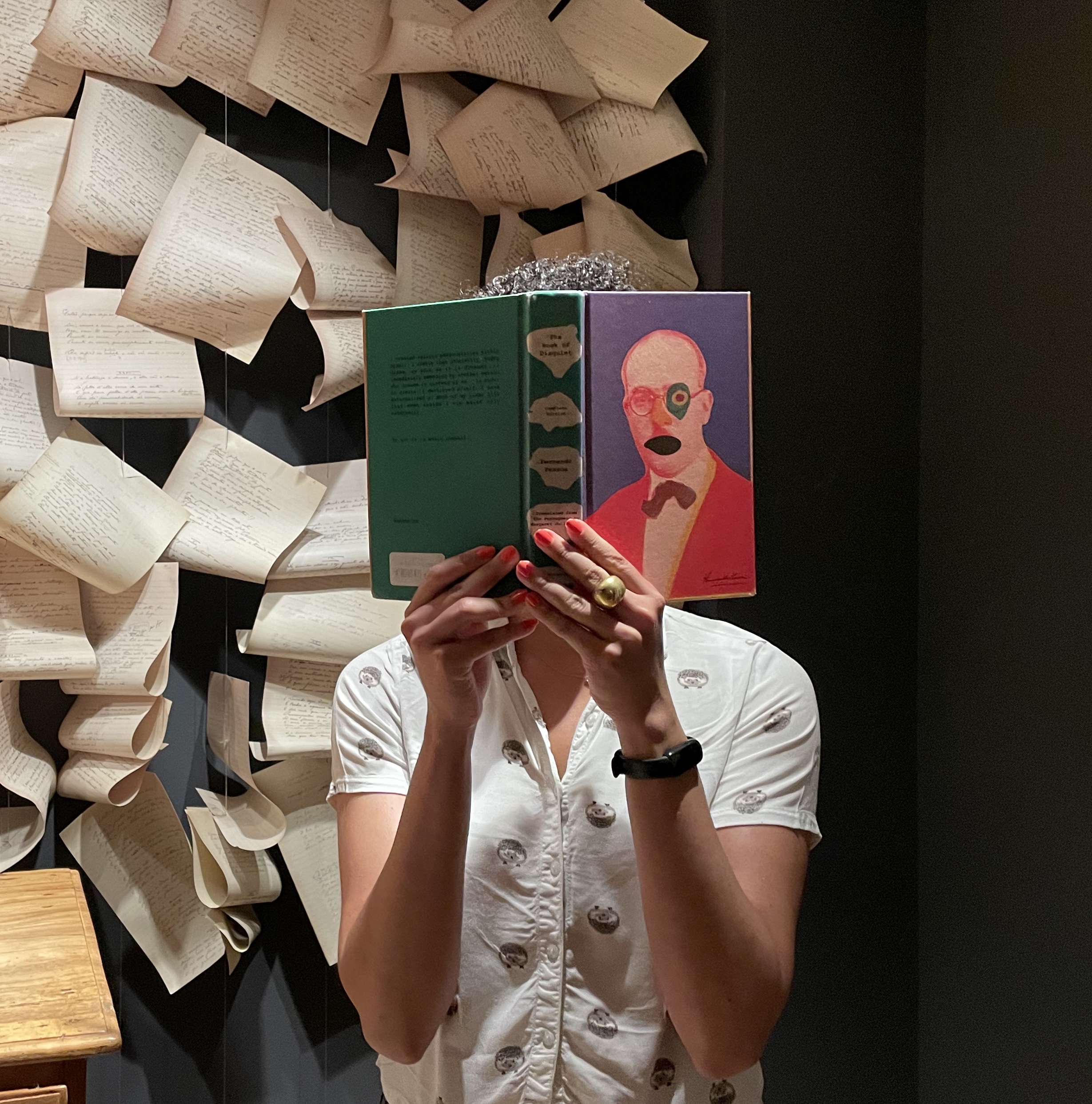All summer, I sit on the porch, my son appearing, disappearing. Walls of rain or night, of larkspur, bleeding heart. The stone floor long ago lifted from the lion’s den.
Translator’s note: Having children is a way of remaking oneself.
Somewhere between sunset and bed, between fireflies’ ellipses and his desperate texting, I beg him to play the saddest songs on his father’s guitar. Swinging Doors. Will the Circle Be Unbroken.
Translator’s note: The wish is to conjoin remnants of some illusory self with a new undiluted self against the disintegrations of time.
If I hum a few bars, his fingers find the chords. How do you know? I ask. My son shrugs, his face bioluminescent. I don’t, he says. I listen.
Eleanor Stanford is the author of three books of poetry, The Imaginal Marriage, Bartram’s Garden, and The Book of Sleep. Her work has appeared in Poetry, Ploughshares, The Iowa Review, The Kenyon Review, and many others. She was a 2014/2016 Fulbright Fellow to Brazil, and a 2019 National Endowment for the Arts Fellow in poetry. She lives in the Philadelphia area.




